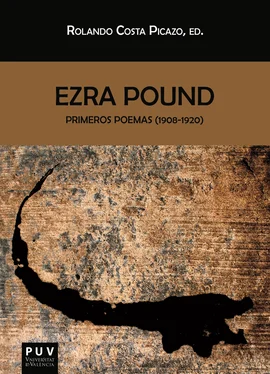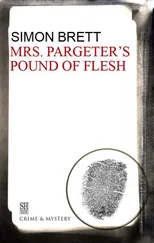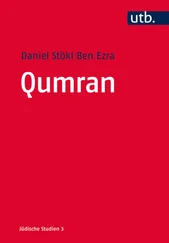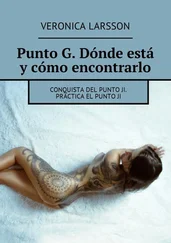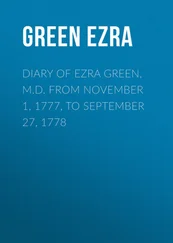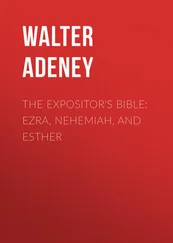La llegada de Joyce et fils 45
a la guarida de Catulo
con la veneración del trueno de Jim 46y el Gardasee 47en
magnificencia
Magnificencia es le mot juste .
A LUME SPENTO
(1908)
LA FRAISNE
For I was a gaunt, grave councillor
Being in all things wise, and very old,
But I have put aside this folly and the cold
That old age weareth for a cloak.
I was quite strong—at least they said so—
The young men at the sword-play;
But I have put aside this folly, being gay
In another fashion that more suiteth me.
I have curled ‘mid the boles of the ash wood,
I have hidden my face where the oak
Spread his leaves over me, and the yoke
Of the old ways of men have I cast aside.
By the still pool of Mar-nan-otha
Have I found me a bride
That was a dog-wood tree some syne.
She hath called me from mine old ways
She hath hushed my rancour of council,
Bidding me praise
Naught but the wind that flutters in the leaves.
She hath drawn me from mine old ways,
Till men say that I am mad;
But I have seen the sorrow of men, and am glad,
For I know that the wailing and bitterness are a folly.
And I? I have put aside all folly and all grief.
I wrapped my tears in an ellum leaf
And left them under a stone
And now men call me mad because I have thrown
All folly from me, putting it aside
To leave the old barren ways of men,
Because my bride
Is a pool of the wood, and
Though all men say that I am mad
It is only that I am glad,
Very glad, for my bride hath toward me a great love
That is sweeter than the love of women
That plague and burn and drive one away.
EL FRESNO
Pues era yo un solitario y grave consejero,
en todos los asuntos sabio, y muy anciano,
pero he dejado de lado esta locura y el frío
que la vejez usa como manto.
Era bastante fuerte, o al menos eso decían
los jóvenes practicando esgrima;
pero he dejado de lado esta locura, pues me alegro
de otra manera que mejor me sienta.
Me he enroscado en los troncos de los fresnos,
he escondido el rostro donde el roble
extiende sus hojas sobre mí, y el yugo
de las antiguas costumbres de los hombres desechado.
Junto al tranquilo estanque de Mar-nan-otha
encontré una esposa,
que antes era un cerezo silvestre.
Ella me ha rescatado de mis viejas costumbres
ella ha aplacado mi rencor de consejero,
haciendo que nada más ponderara
el viento que aletea entre las hojas.
Ella me ha apartado de mis viejas costumbres,
al punto de que los hombres dicen que estoy loco;
pero he visto el dolor de los hombres, y me alegro.
Porque sé que el lamento y la amargura son una locura.
¿Y yo? Yo he dejado de lado toda locura y toda pena.
Envolví mis lágrimas en una hoja de olmo
y las dejé debajo de una piedra
y ahora los hombres me llaman loco porque he arrojado
de mí toda forma de locura, apartándola
para abandonar las viejas costumbres de los hombres,
porque mi esposa
es un estanque en el bosque, y
aunque todos los hombres dicen que estoy loco
lo que pasa es que solo estoy contento,
muy contento, y mi esposa tiene por mí un gran amor
que es más dulce que el amor de las mujeres
que atormenta y quema y que nos aleja.
Aie-e! ‘Tis true that I am gay
Quite gay, for I have her alone here
And no man troubleth us.
Once when I was among the young men …
And they said I was quite strong, among the young men.
Once there was a woman …
… but I forget … she was …
… I hope she will not come again.
… I do not remember….
I think she hurt me once, but …
That was very long ago.
I do not like to remember things any more.
I like one little band of winds that blow
In the ash trees here:
For we are quite alone
Here ‘mid the ash trees.
¡Aye! Es verdad que soy alegre
muy alegre, porque la tengo aquí solo para mí,
y no hay hombre que nos moleste.
Antes, cuando estaba entre los hombres …
y decían que yo era fuerte, entre los jóvenes,
una vez hubo una mujer …
… pero no me acuerdo … ella era …
… espero que no vuelva otra vez.
… no recuerdo …
Creo que una vez me lastimó, pero …
Hace mucho tiempo de eso.
Ya no me gusta más recordar cosas.
Me gusta una pequeña orquesta de vientos que soplan
aquí, en los fresnos:
porque estamos totalmente solos
aquí, entre los fresnos.
CINO
(Italian Campagna 1309, the open road)
“Bah! I have sung women in three cities,
But it is all the same;
And I will sing of the sun.
Lips, words, and you snare them,
Dreams, words, and they are as jewels,
Strange spells of old deity,
Ravens, nights, allurement:
And they are not;
Having become the souls of song.
Eyes, dreams, lips, and the night goes.
Being upon the road once more,
They are not.
Forgetful in their towers of our tuneing
Once for wind-runeing
They dream us-toward and
Sighing, say, “Would Cino,
“Passionate Cino, of the wrinkling eyes,
“Gay Cino, of quick laughter,
“Cino, of the dare, the jibe.
“Frail Cino, strongest of his tribe
“That tramp old ways beneath the sun-light,
“Would Cino of the Luth were here!”
Once, twice a year—-
Vaguely thus word they:
“Cino?” “Oh, eh, Cino Polnesi
“The singer is’t you mean?”
“Ah yes, passed once our way,
“A saucy fellow, but …
“(Oh they are all one these vagabonds),
“Peste! ‘tis his own songs?
“Or some other’s that he sings?
“But you , My Lord, how with your city?”
CINO
(En la campiña italiana, 1309, en el camino)
¡Bah! He cantado a las mujeres en tres ciudades,
pero es todo lo mismo;
y he de cantar al sol.
Labios, palabras, y los atrapas,
sueños, palabras, y son como joyas.
extraños conjuros de antigua deidad,
cuervos, noches, tentaciones:
y ya no están;
se han convertido en las almas del canto.
Ojos, sueños, labios, y se va la noche.
Cuando se vuelve a estar en el camino,
ya no son.
Olvidados en la torres de nuestras canciones,
que alguna vez en las runas del viento
nos hacen soñar y
suspirando dicen “¡Ojalá Cino,
el apasionado Cino, el que entrecierra los ojos,
el alegre Cino, de la risa fácil,
Cino, el de lo desafíos y las burlas,
el frágil Cino, el más fuerte de su tribu,
que recorre antiguos caminos bajo la luz del sol,
ojalá Cino el del laúd estuviera aquí!”
Una o dos veces por año,
vagamente dicen:
“¿Cino?” “Ah, eh, Cino Polnesi,
“¿Os referís al cantante?”
“Ah, sí, que una vez pasó por aquí,
un tipo desvergonzado, pero …
“(Ay, son todos iguales estos vagabundos).”
“¡Una peste! ¿las canciones son suyas?
¿O canta las de otro?”
“Pero vos , mi Señor, ¿qué tal vuestra ciudad?”
But you “My Lord,” God’s pity!
And all I knew were out, My Lord, you
Were Lack-land Cino, e’en as I am,
O Sinistro.
I have sung women in three cities.
But it is all one.
I will sing of the sun.
… eh? … they mostly had grey eyes,
But it is all one, I will sing of the sun.
“‘Pollo Phoibee, old tin pan, you
Glory to Zeus’ aegis-day,
Shield o’ steel-blue, th’ heaven o’er us
Читать дальше
